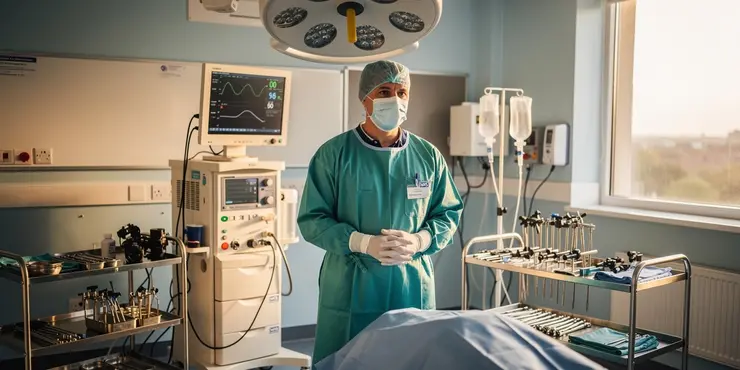
Find Help
More Items From Ergsy search
-
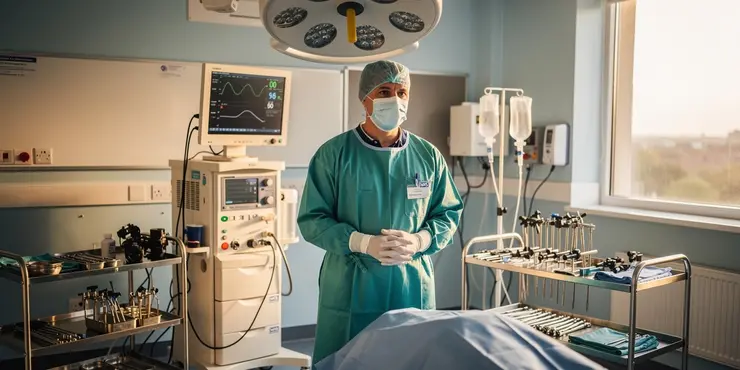
What is the treatment for appendicitis?
Relevance: 100%
-
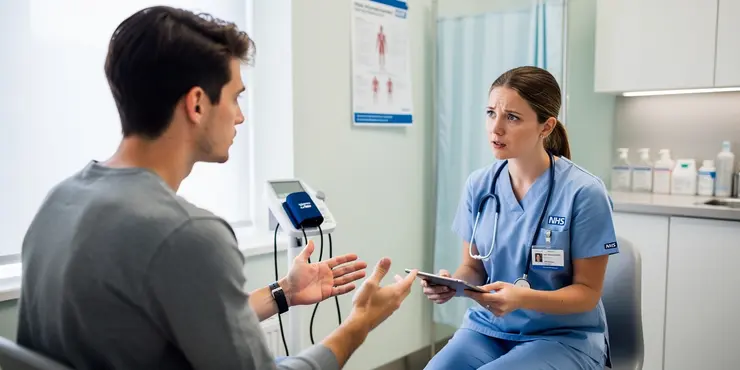
What is Appendicitis?
Relevance: 84%
-
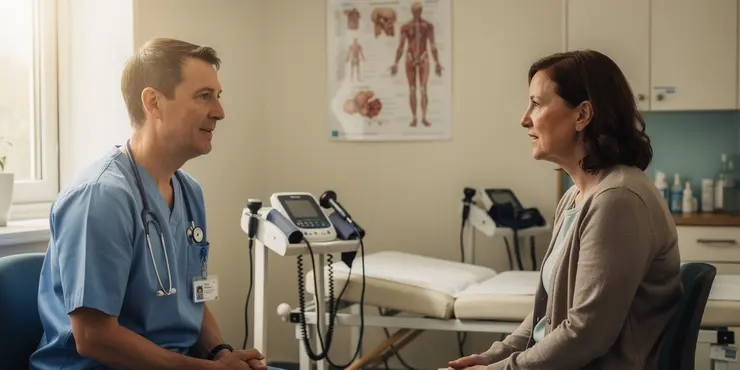
Is appendicitis hereditary?
Relevance: 83%
-

Can appendicitis go away on its own?
Relevance: 78%
-
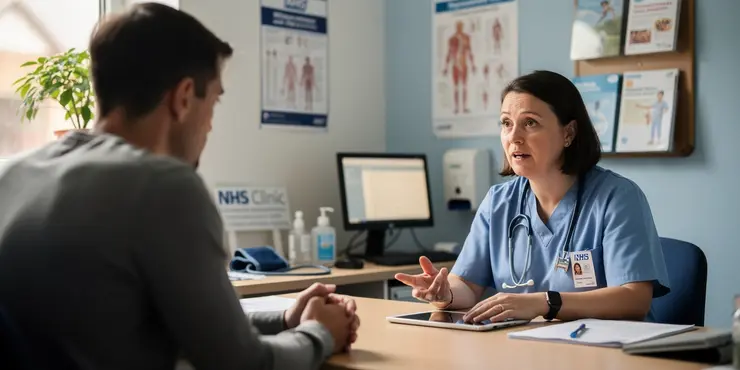
Can appendicitis be treated with antibiotics?
Relevance: 78%
-
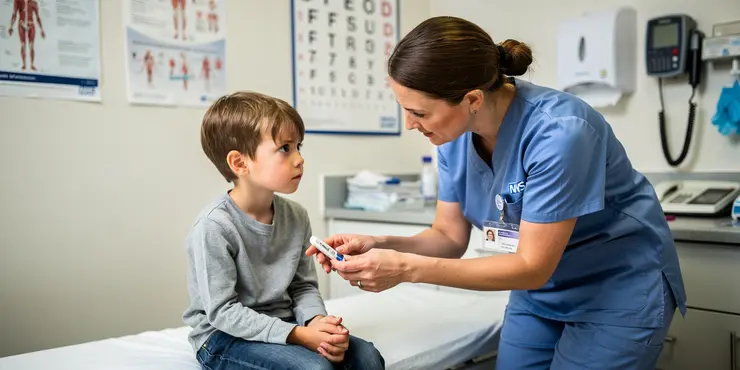
What causes appendicitis?
Relevance: 78%
-
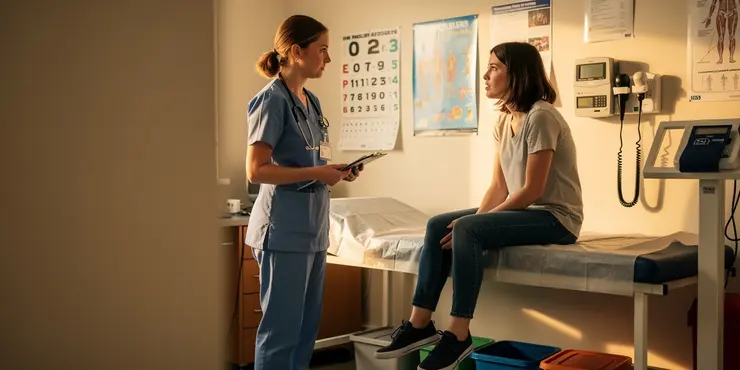
How is appendicitis diagnosed?
Relevance: 77%
-
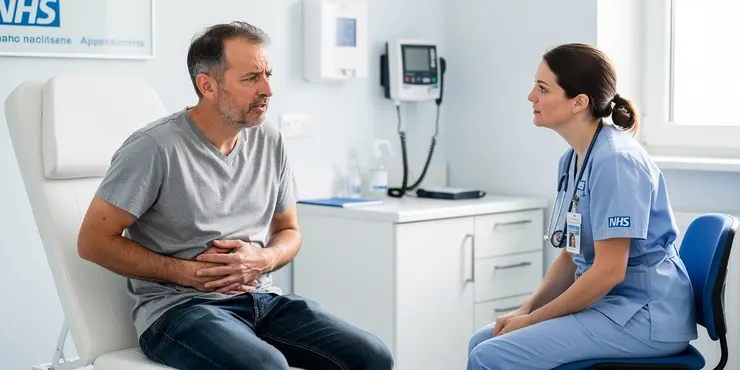
What are the potential complications of appendicitis?
Relevance: 75%
-
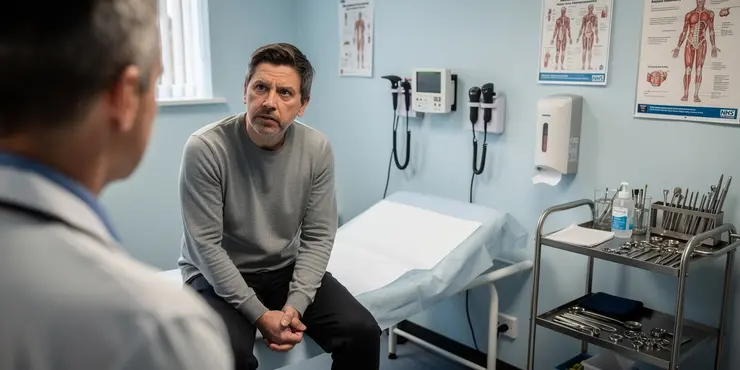
What happens if appendicitis is left untreated?
Relevance: 75%
-
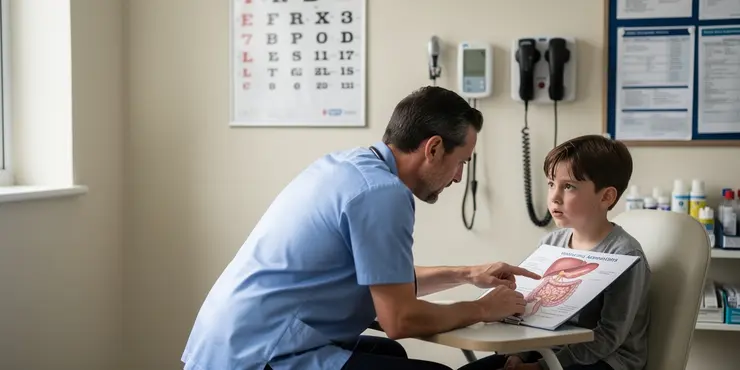
What is the likelihood of needing surgery for suspected appendicitis?
Relevance: 73%
-
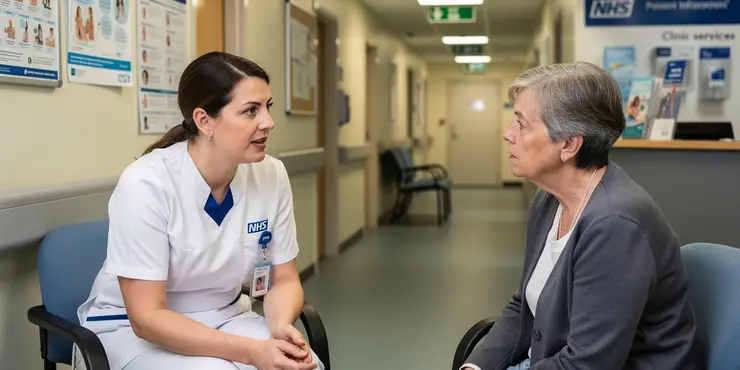
Can appendicitis occur more than once?
Relevance: 73%
-
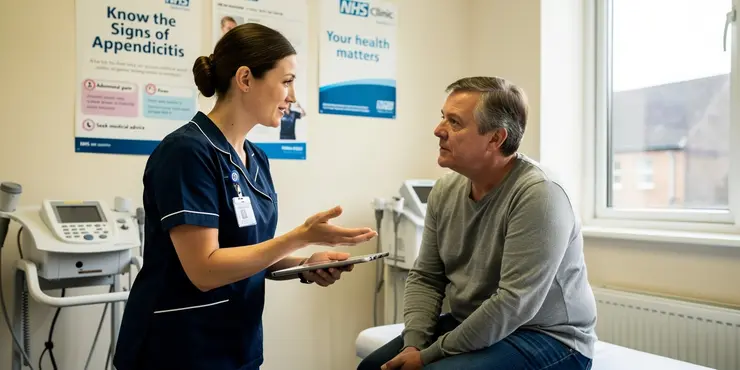
What are the common symptoms of appendicitis?
Relevance: 72%
-
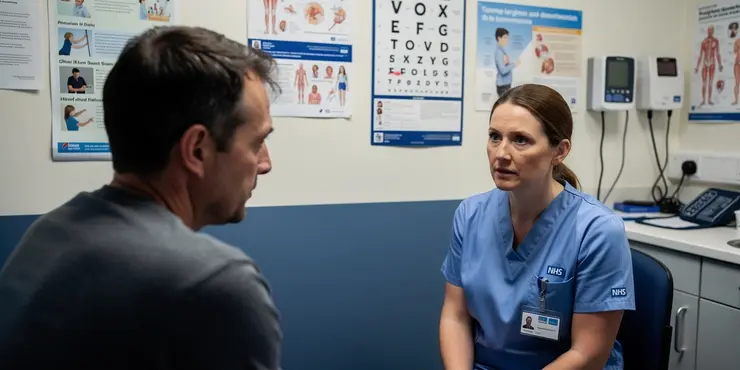
How soon should you see a doctor if you suspect appendicitis?
Relevance: 69%
-
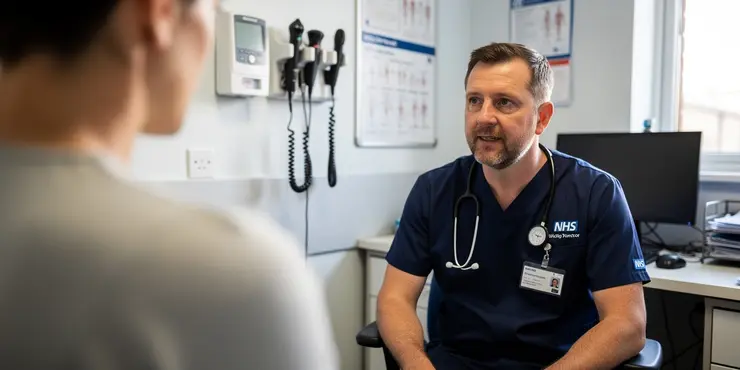
How is appendicitis different from other causes of abdominal pain?
Relevance: 68%
-
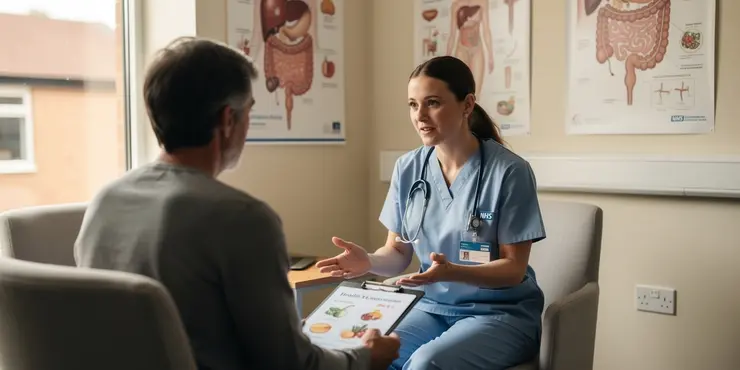
Can diet or lifestyle changes prevent appendicitis?
Relevance: 68%
-
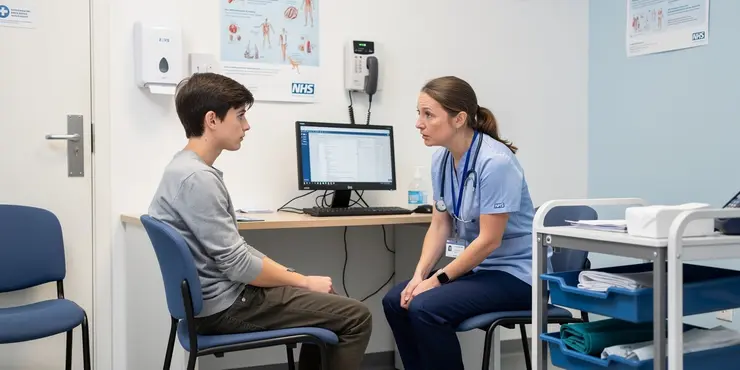
Is appendicitis common in any particular age group?
Relevance: 68%
-
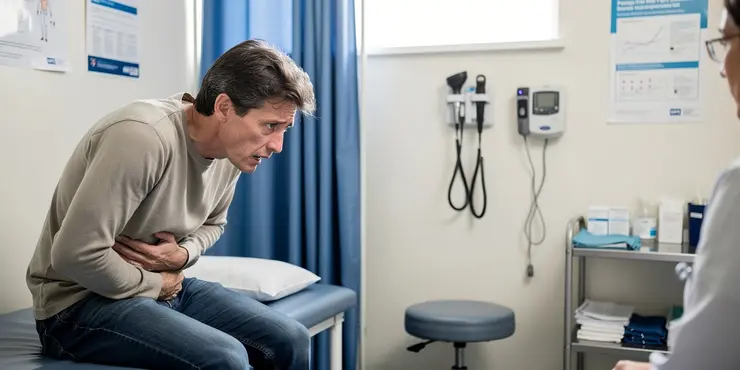
Where is the pain located when you have appendicitis?
Relevance: 67%
-

Can you live without an appendix?
Relevance: 35%
-
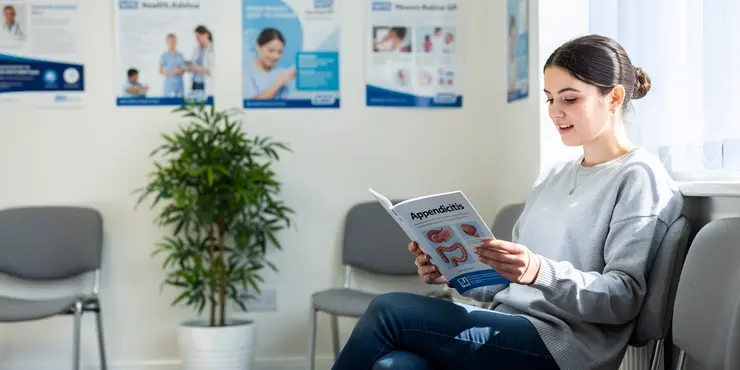
Are there any risk factors for appendicitis?
Relevance: 31%
-
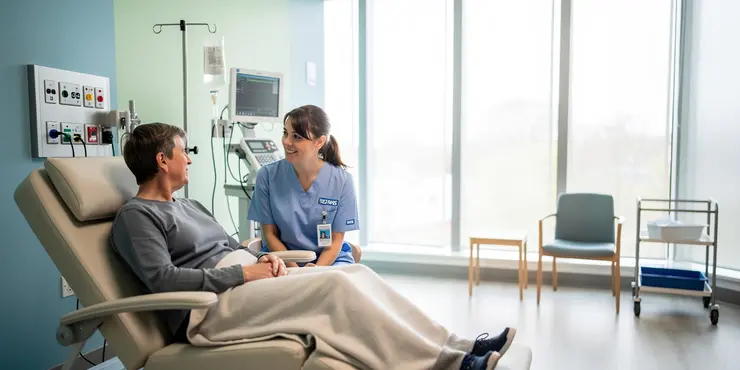
Having chemotherapy and other treatments in the Day Treatment Unit
Relevance: 30%
-
Is there a treatment for measles?
Relevance: 30%
-
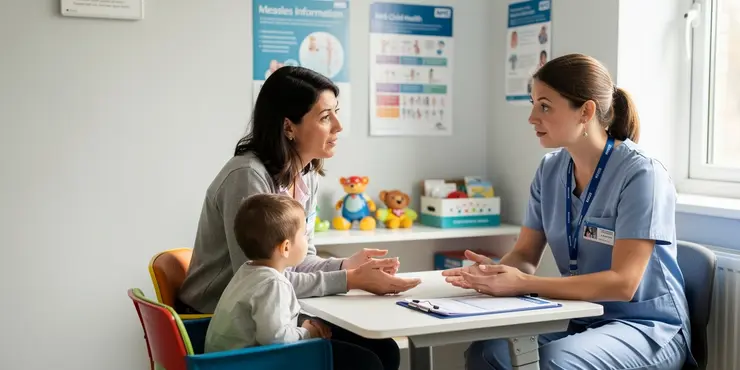
Is there a treatment for measles?
Relevance: 29%
-
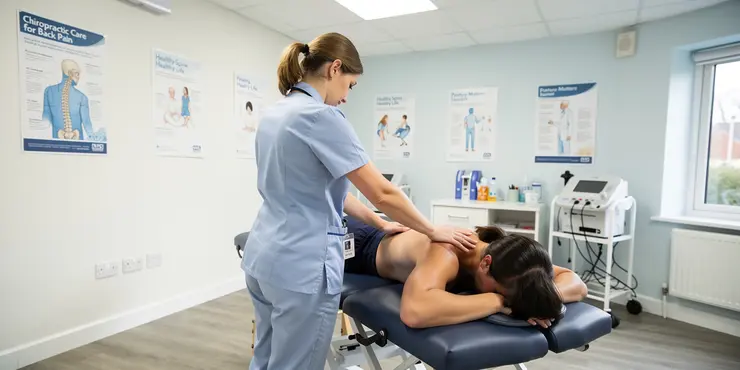
Are chiropractic treatments safe?
Relevance: 29%
-
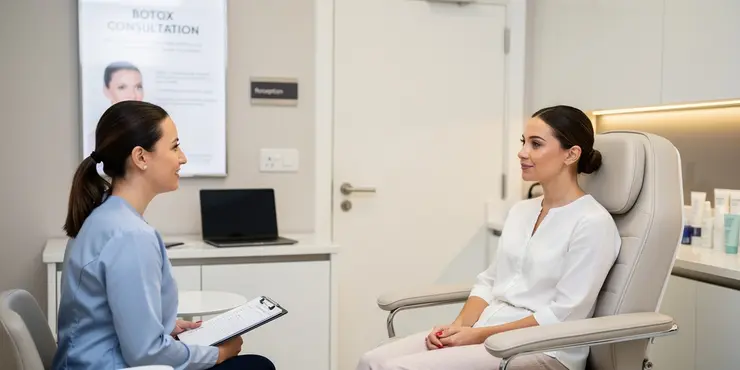
Is Botox treatment expensive?
Relevance: 29%
-
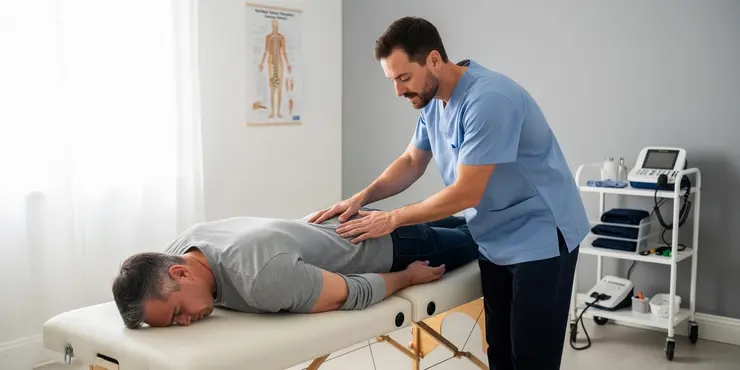
Are chiropractic treatments painful?
Relevance: 29%
-

Eating disorders: treatment
Relevance: 28%
-
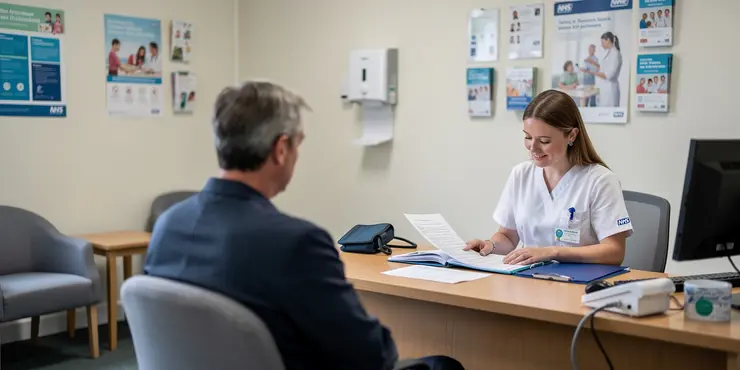
Is Paillon treatment a form of chemotherapy?
Relevance: 28%
-
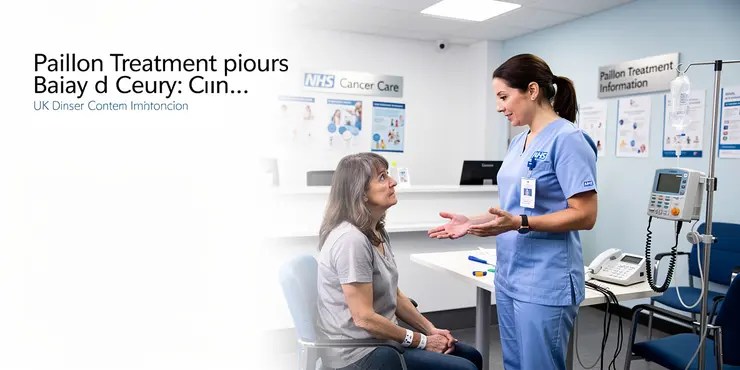
What is Paillon treatment for cancer?
Relevance: 28%
-
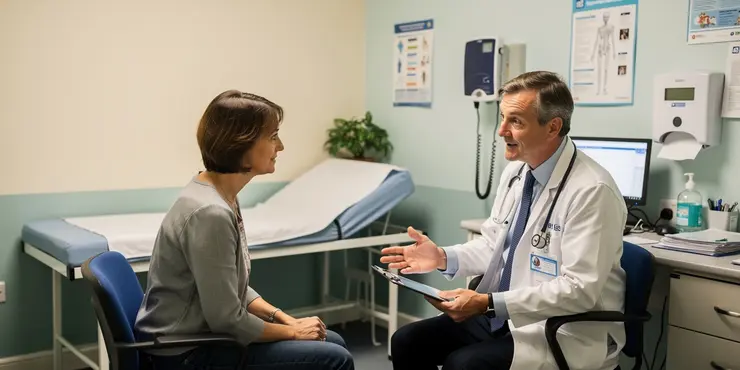
Who developed the Paillon treatment?
Relevance: 28%
-
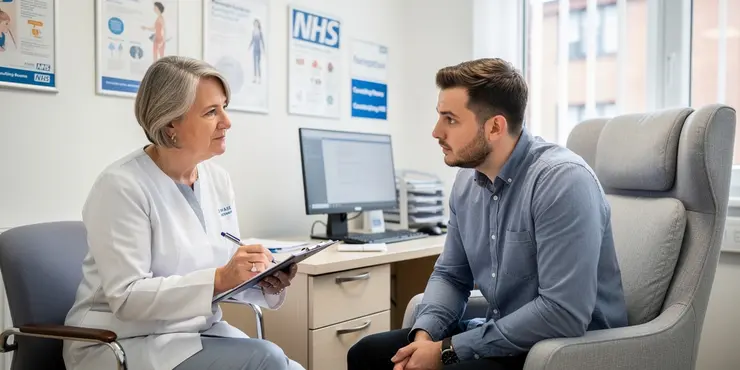
How is Paillon treatment administered?
Relevance: 28%
-
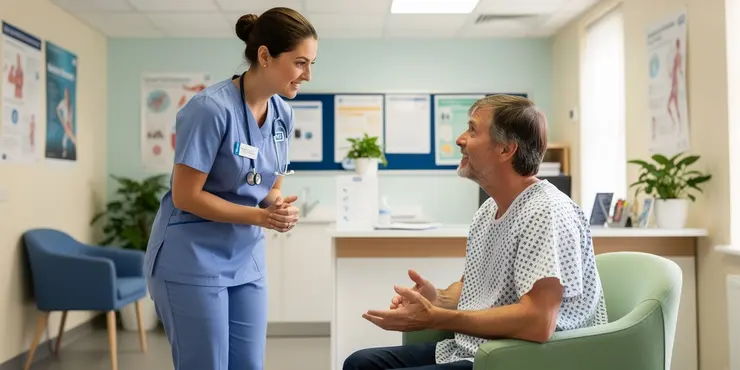
BSL - Treatments for insomnia
Relevance: 28%
-
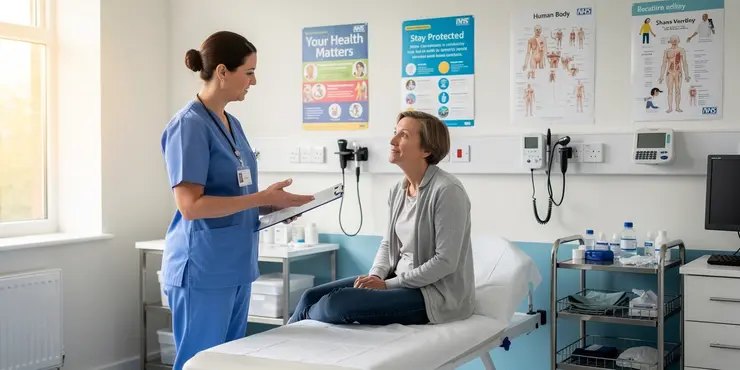
Is Paillon treatment FDA approved?
Relevance: 28%
-
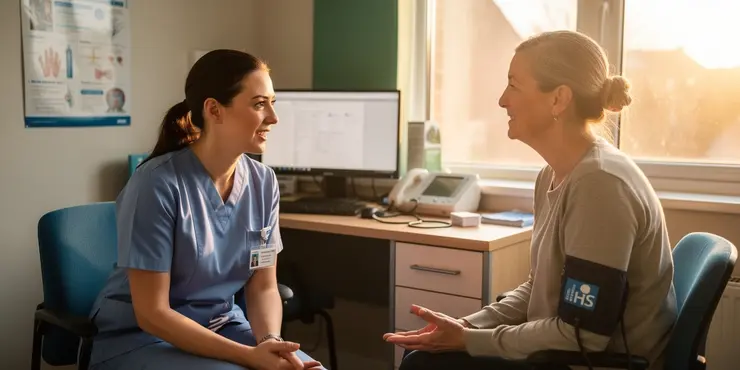
Is a prescription required for Paillon treatment?
Relevance: 28%
-
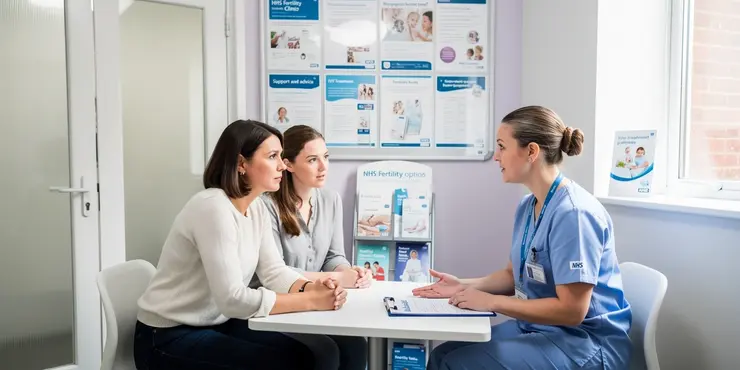
Fertility treatments on the up, but not via the NHS
Relevance: 28%
-
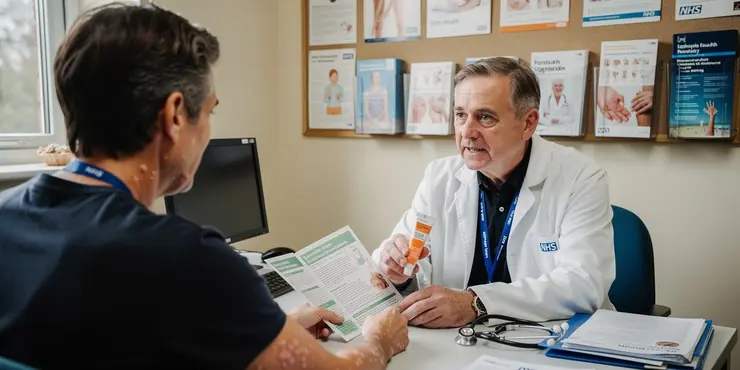
What are topical treatments for psoriasis?
Relevance: 28%
-
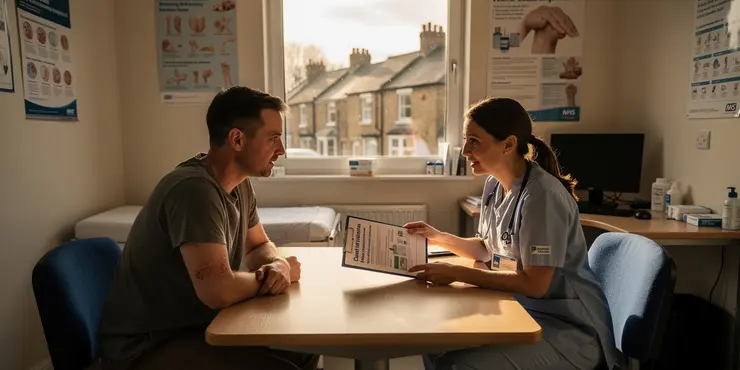
What treatments are available for eczema?
Relevance: 27%
-
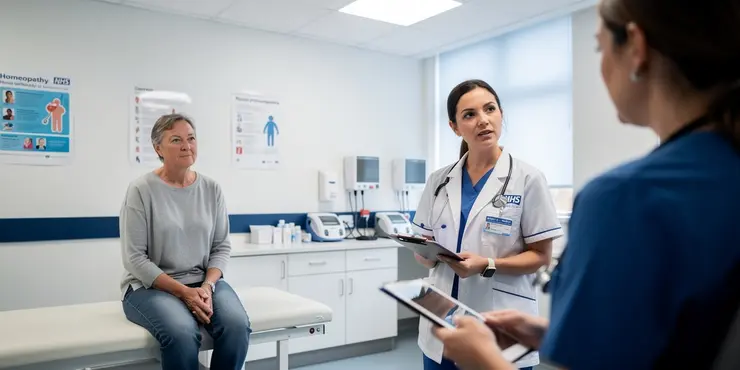
Are homeopathic treatments covered by the NHS?
Relevance: 27%
-
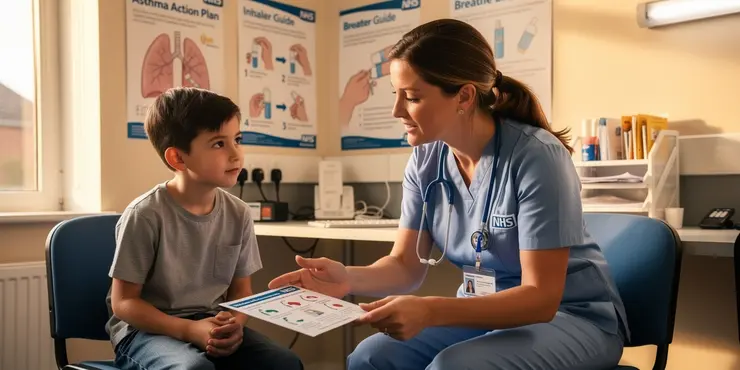
Are inhalers the only treatment for asthma?
Relevance: 27%
-
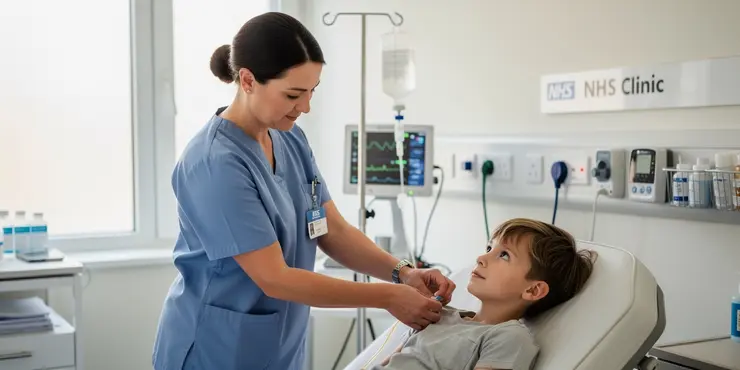
What is the treatment for bacterial meningitis?
Relevance: 27%
-
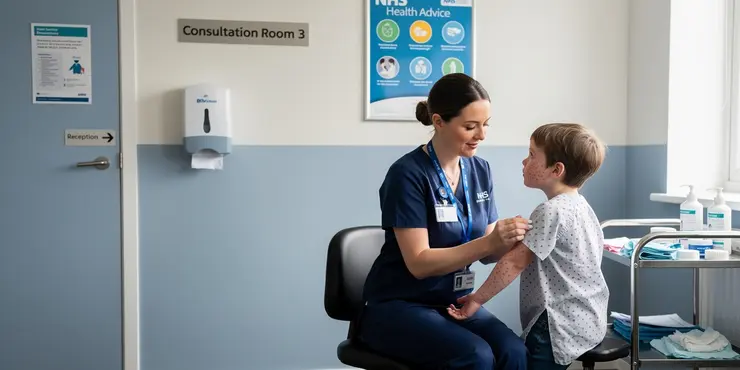
What is the treatment for chickenpox?
Relevance: 27%
Understanding Appendicitis and Its Treatment
Appendicitis is a common medical condition where the appendix, a small tube-shaped organ attached to the large intestine, becomes inflamed and filled with pus. This condition often results in severe abdominal pain, and if left untreated, can lead to serious complications such as a ruptured appendix and peritonitis, an inflammation of the abdominal cavity. Therefore, timely treatment is crucial.
Surgical Treatment: Appendicectomy
The primary and most effective treatment for appendicitis is surgical removal of the appendix, a procedure known as an appendicectomy or appendectomy. In the UK, this procedure is typically performed as an emergency surgery, often within 24 to 48 hours of diagnosis. There are two main surgical methods used:
Laparoscopic Surgery: Also known as keyhole surgery, this minimally invasive technique involves making small incisions in the abdomen to remove the appendix. A laparoscope (a thin tube with a camera and light at the end) allows the surgeon to view the appendix on a monitor and perform the operation using small instruments. Laparoscopic surgery is generally preferred due to its faster recovery time, less scarring, and reduced risk of infection.
Open Surgery: In cases where the appendix has ruptured or other complications arise, an open surgery might be necessary. This involves a larger incision in the lower right quadrant of the abdomen to remove the appendix. Although recovery may take longer compared to laparoscopic surgery, open surgery allows the surgeon to thoroughly clean the abdominal cavity in cases of a burst appendix.
Non-Surgical Treatment: Antibiotics
While surgery is the standard treatment, there is ongoing research into the use of antibiotics as a first-line treatment for uncomplicated appendicitis. In some cases, antibiotics alone may resolve the inflammation and infection, potentially avoiding the need for surgery. However, this approach is typically considered only for specific patient groups or in situations where surgery presents significant risks. It's important to note that patients treated with antibiotics alone may still require surgery in the future if appendicitis recurs.
Recovery and Aftercare
Post-surgery, patients usually recover quickly, especially after laparoscopic appendicectomy. Hospital stays can range from a single day to a few days, depending on the patient's condition and the type of surgery performed. Recovery at home involves managing pain with prescribed medication, avoiding strenuous activities, and ensuring follow-up visits with the healthcare provider. Full recovery typically occurs within a few weeks, although it might take longer after open surgery.
Overall, with prompt medical intervention, most people recover completely from appendicitis without long-term complications. If you suspect appendicitis, it is vital to seek medical attention immediately to reduce the risk of complications.
What is Appendicitis?
Appendicitis is when a small part of your body called the appendix gets very sore and swollen. The appendix is a tiny tube attached to your big intestine. If it gets very sore, your tummy can hurt a lot. It's important to get help from a doctor quickly because if you wait too long, it can cause bigger problems in your belly.
How Doctors Treat Appendicitis with Surgery
Doctors can fix appendicitis by taking out the appendix. This is called appendicectomy or appendectomy. In the UK, this surgery is usually done quickly after the doctor finds out you have appendicitis. There are two ways to do this surgery:
Laparoscopic Surgery: This is also called keyhole surgery. The doctor makes small cuts in your tummy and uses a special camera to see inside. They take out the appendix with tiny tools. This way is good because you can get better faster, have less marks on your body, and there is less chance of getting an infection.
Open Surgery: If your appendix bursts or there are other problems, the doctor might make a bigger cut in your tummy to take out the appendix. This way might take longer to get better, but it helps the doctor clean your belly well if your appendix bursts.
How Doctors Treat Appendicitis with Medicine
Even though surgery is the usual treatment, doctors are looking into using medicine called antibiotics to treat appendicitis. Sometimes, these medicines can make the appendix better without surgery. This may work for some people, but others might still need surgery later if appendicitis happens again.
Getting Better After Treatment
After the surgery, most people feel better quickly. If you have laparoscopic surgery, you may only need to stay in the hospital for one or two days, but sometimes a bit longer. At home, you need to take care of yourself by resting, taking medicine for pain if needed, and visiting your doctor to check you are healing well. It usually takes a few weeks to get all better, longer if you had open surgery.
Most people get completely better from appendicitis if they get help from a doctor quickly. If your tummy hurts a lot, tell a grown-up and see a doctor right away to stay safe.
If you need help understanding, ask a friend or family member to read with you. You can also use tools like text-to-speech to listen to the text.
Frequently Asked Questions
What is the primary treatment for appendicitis?
The primary treatment for appendicitis is surgical removal of the appendix, known as an appendectomy.
Are antibiotics used in the treatment of appendicitis?
Yes, antibiotics are often used before and after surgery to help treat or prevent infection.
Can appendicitis be treated without surgery?
In some cases, mild appendicitis can be treated with antibiotics alone, but this approach carries the risk of recurrence.
What is a laparoscopic appendectomy?
A laparoscopic appendectomy is a minimally invasive surgical procedure where small incisions and special instruments are used to remove the appendix.
How long does recovery take after an appendectomy?
Recovery usually takes about 1 to 3 weeks for a laparoscopic appendectomy and 2 to 4 weeks for an open appendectomy.
What is an open appendectomy?
An open appendectomy is a traditional surgical method that involves a larger incision in the abdomen to remove the appendix.
What are the risks associated with appendectomy?
Risks include bleeding, infection, hernia, and reactions to anesthesia, though these are generally rare.
Can appendicitis resolve on its own?
Appendicitis usually requires treatment, as a ruptured appendix can lead to serious complications. It rarely resolves on its own.
What are the signs that appendicitis needs emergency treatment?
Severe abdominal pain, fever, vomiting, and signs of infection or sepsis require immediate medical attention and treatment.
Is it possible to prevent appendicitis?
There is no guaranteed way to prevent appendicitis, but a diet high in fiber may reduce the risk.
What happens if the appendix bursts?
If the appendix bursts, it can lead to peritonitis, a serious infection that requires urgent treatment, often involving surgery and antibiotics.
Is an appendectomy considered a major surgery?
While an appendectomy is a common procedure, it is considered major surgery due to the use of anesthesia and the potential for complications.
How is appendicitis diagnosed?
Appendicitis is diagnosed through physical exams, blood tests, imaging tests like an ultrasound or CT scan, and sometimes exploratory surgery.
Can children get appendicitis?
Yes, appendicitis can occur in children and is one of the most common reasons for emergency abdominal surgery in kids.
What dietary changes can help after an appendectomy?
A diet focusing on high fiber and easily digestible foods, while avoiding heavy, fatty, or spicy foods temporarily, may aid recovery.
Can you exercise after having an appendectomy?
Strenuous activities should be avoided for a few weeks after surgery, but light activities like walking are generally encouraged once comfortable.
What is the appendix, and why does it become inflamed?
The appendix is a small pouch attached to the large intestine. It can become inflamed due to blockage, infection, or other factors.
What can be done to manage pain after appendectomy?
Pain management includes over-the-counter or prescribed pain relievers and employing measures like rest and gentle physical activity.
What are potential complications if appendicitis is left untreated?
Untreated appendicitis can lead to appendix rupture, peritonitis, and abscess formation, which can be life-threatening.
How soon after symptoms appear should treatment for appendicitis be sought?
Treatment for appendicitis should be sought as soon as symptoms appear to avoid complications like rupture.
How do doctors fix appendicitis?
The main way to treat appendicitis is to take out the appendix with an operation. This is called an appendectomy.
Do doctors use medicine to treat appendicitis?
Doctors sometimes use special medicine called antibiotics to help people with appendicitis. Appendicitis is when a small part inside your tummy gets really sore.
If you or someone you know has appendicitis, a doctor will decide the best way to help. They might use medicine or do a small operation to make it better.
If reading is hard, try asking someone to read out loud with you or use a tool that reads the words for you.
Yes, doctors often give medicine called antibiotics before and after an operation. This helps stop people from getting an infection.
Can you fix appendicitis without surgery?
Appendicitis is when a small part inside your tummy, called the appendix, gets sore and swollen. Sometimes, doctors can help by giving medicine to make it better instead of cutting it out. This medicine is called antibiotics.
But not everyone can get better with just medicine. Some people might still need surgery to feel better.
If you think you have appendicitis, it is very important to see a doctor. The doctor will decide the best way to help you.
To make it easier to understand, you can:
- Ask someone to read with you.
- Use pictures to help explain.
- Listen to the words read aloud.
- Use a dictionary for new words.
Sometimes, a sore appendix can get better with just medicine. But, this might mean the problem could come back later.
What is a keyhole surgery to take out the appendix?
A keyhole surgery is when doctors use tiny cuts and a camera to see inside your body.
An appendix is a small tube inside your tummy. Sometimes it gets sick and needs to come out.
Doctors use tools through the tiny cuts to take out the appendix. This is called a keyhole surgery.
You can use pictures or videos to better understand how this works. Ask an adult for help!
A laparoscopic appendectomy is a type of surgery. It helps take out your appendix. The doctor uses small cuts and special tools to do this.
How long does it take to get better after appendix surgery?
Getting better after having your appendix removed can take some time. Most people start to feel okay after a few days. But full recovery might take up to 4 weeks.
Here are some things that can help:
- Rest: Make sure you get plenty of sleep.
- Eat healthy food: Eat fruits, vegetables, and drink lots of water.
- Listen to your doctor: Follow their advice about moving around and taking medicine.
- Ask for help: Family or friends can help you with things around the house.
Remember: If you feel a lot of pain or get a fever, tell a grown-up or your doctor.
Getting better after an operation can take some time. If you have a small cut operation called a 'laparoscopic appendectomy', it usually takes 1 to 3 weeks. If you have a bigger cut operation called an 'open appendectomy', it usually takes 2 to 4 weeks.
Here are some things that can help you feel better:
- Rest as much as you can.
- Ask someone for help when you need it.
- Eat healthy food to help your body heal.
What is an open appendectomy?
An open appendectomy is an operation. The doctor takes out your appendix. The appendix is a small part inside your belly.
You might need this if your appendix is sick. The doctor makes a cut to take it out.
If you want to know more, ask a doctor or look at pictures.
An open appendectomy is a type of surgery. The doctor makes a bigger cut in the belly to take out the appendix.
What are the risks of having an appendix removed?
Here are some things that can happen when you have your appendix taken out:
- You might feel sore where the doctors operate.
- Sometimes the place where they cut can get infected.
- You might feel tired for a while after the operation.
- There is a small chance of getting a fever or feeling unwell.
- Some people may have trouble going to the bathroom.
It is a good idea to:
- Talk to your doctor if you feel worried.
- Rest and take it easy after the operation.
- Ask someone for help if you need it.
When you have surgery, some things can go wrong. You might bleed, get an infection, or have a hernia. Sometimes, people might not feel good after taking medicine to sleep during surgery. But don't worry, these problems don't happen very often.
Can your appendix get better by itself?
The appendix is a small part in your tummy. Sometimes it can get very sore. This is called appendicitis.
Usually, when the appendix gets sore, you might need to see a doctor. The doctor can help make it better.
Sometimes, with rest and medicine, the soreness can go away. But it is important to tell a grown-up and see a doctor to make sure you are safe.
If you feel pain in your tummy, tell someone you trust. They can help you find help.
Use simple tools like pictures, videos, or an adult's help to understand more.
Appendicitis means your appendix is very sore and it needs help. If it bursts, it can cause big problems. It almost never gets better without a doctor's help.
What signs mean you need quick help for appendicitis?
If you have these signs, you need to see a doctor right away:
- Bad pain in the lower right side of your tummy.
- Feeling sick or throwing up.
- High temperature or fever.
- Swollen tummy.
- Can't pass gas or go to the bathroom.
Ask someone you trust to help you if you feel these things. Use a picture chart or sign words if it's hard to say the words.
If you have really bad tummy pain, a fever, feel like throwing up, or think you might have an infection, you need to see a doctor right away. This is very important.
Can you stop appendicitis from happening?
We can't stop appendicitis every time, but eating foods with lots of fiber might help you not get it.
What happens if the appendix bursts?
The appendix is a small part inside the body. It can get very sick and burst.
If it bursts, it can cause a big problem. The person might have a very bad stomach ache and feel really sick. It's important to go to the doctor quickly.
Here are some things that can help:
- Ask an adult to take you to the hospital.
- Tell the doctor how you feel.
- Get lots of rest after seeing the doctor.
Remember, doctors can help make you feel better.
If the appendix bursts, it can cause a bad infection called peritonitis. This is very serious and needs to be treated right away with surgery and medicine called antibiotics.
To help understand this, you can:
- Use picture books about the body.
- Watch videos that explain how the body works.
- Ask a grown-up to help explain using simple words.
Is getting your appendix taken out a big surgery?
Having your appendix taken out is a common surgery. It is called 'major surgery' because doctors give you special medicine to make you sleep, and there can be problems.
How do doctors know if someone has appendicitis?
Doctors find out if you have appendicitis by doing a few things. They might check your tummy by touching it. They can also take a little bit of your blood to look at it. Sometimes, doctors take special pictures of the inside of your tummy. They do this using machines called an ultrasound or a CT scan. And if they still aren't sure, they might do a small surgery to look inside your tummy.
Can kids have pain in the appendix?
Yes, kids can have pain in their appendix. This is called appendicitis.
The appendix is a small part inside the tummy. It can get sore and make you feel really bad.
If a kid has appendicitis, they might say their tummy hurts a lot. They could also feel sick or have a fever.
If you think a kid has this, go to the doctor right away. They can help make it better.
Here are some tools or tips to help:
- Read with someone who can explain things.
- Use pictures to understand better.
- Ask questions if you don't understand.
Yes, children can have appendicitis. It is when the appendix gets swollen and painful. It is a common reason why kids might need emergency belly surgery.
What food changes can help after appendix surgery?
Eating foods with lots of fiber and that are easy to digest can help you feel better. Try not to eat foods that are heavy, very fatty, or too spicy for a little while. This will help your body recover.
Can you exercise after an appendectomy?
You might wonder if you can exercise after having your appendix taken out. It's best to wait until your doctor says it's okay. Here are some tips:
- Talk to your doctor before starting any exercises.
- Start with easy exercises like walking.
- Listen to your body. Stop if you feel pain.
- Use a timer to keep track of your exercise time.
- Ask a friend or family member for help if you need it.
Remember, it's important to be safe and take things slowly.
After surgery, do not do any hard activities for a few weeks. But, once you feel okay, you can do easy activities like walking.
What is the appendix, and why does it get sore?
The appendix is a small tube in your belly. It is part of your body.
Sometimes the appendix can get sore and swollen. This is called being inflamed. When this happens, it can hurt a lot.
If you want to understand better, you can use pictures or videos to help you. You can also ask someone to explain it to you in a simple way.
The appendix is a small pouch. It is attached to the big intestine in your body. Sometimes, the appendix can get swollen. This can happen because something blocks it, it gets an infection, or other things.
If you want help understanding this, you can use pictures, ask someone to explain, or try reading with a friend.
How can you feel better after appendix surgery?
When you have pain, you can take medicine from the store or medicine from the doctor. Resting and doing easy exercises can help you feel better too.
What can happen if appendicitis is not treated?
If appendicitis is not taken care of, it can cause problems. These problems can make you very sick.
Here is what might happen:
- The appendix can burst. This is very bad and can spread infection inside the belly.
- There can be a big infection in the belly. This is called peritonitis and needs a doctor’s help quickly.
- It can also make an abscess, which is a sore filled with pus.
If you think you have appendicitis, you should see a doctor straight away. Tell an adult if your belly hurts a lot, especially on the lower right side.
It helps to use simple words and to ask someone you trust for help if you feel confused. You can also use the "read aloud" feature on your device to hear the words spoken to you.
If you don't treat appendicitis, it can burst open. This can cause a big infection inside your belly and pus pockets, which can be very dangerous.
When should you see a doctor for appendicitis?
If you feel pain in your tummy and think it might be appendicitis, it is important to see a doctor quickly.
Go to the doctor as soon as you feel symptoms like pain or discomfort.
It's best not to wait to get help, as getting treated early is important.
Ask someone to help you call the doctor if you need support.
See a doctor quickly if you think you have appendicitis. This will help stop any problems, like the appendix bursting.
Useful Links
This website offers general information and is not a substitute for professional advice.
Always seek guidance from qualified professionals.
If you have any medical concerns or need urgent help, contact a healthcare professional or emergency services immediately.
Some of this content was generated with AI assistance. We’ve done our best to keep it accurate, helpful, and human-friendly.
- Ergsy carfully checks the information in the videos we provide here.
- Videos shown by Youtube after a video has completed, have NOT been reviewed by ERGSY.
- To view, click the arrow in centre of video.
- Most of the videos you find here will have subtitles and/or closed captions available.
- You may need to turn these on, and choose your preferred language.
- Go to the video you'd like to watch.
- If closed captions (CC) are available, settings will be visible on the bottom right of the video player.
- To turn on Captions, click settings .
- To turn off Captions, click settings again.
More Items From Ergsy search
-

What is the treatment for appendicitis?
Relevance: 100%
-

What is Appendicitis?
Relevance: 84%
-

Is appendicitis hereditary?
Relevance: 83%
-

Can appendicitis go away on its own?
Relevance: 78%
-

Can appendicitis be treated with antibiotics?
Relevance: 78%
-

What causes appendicitis?
Relevance: 78%
-

How is appendicitis diagnosed?
Relevance: 77%
-

What are the potential complications of appendicitis?
Relevance: 75%
-

What happens if appendicitis is left untreated?
Relevance: 75%
-

What is the likelihood of needing surgery for suspected appendicitis?
Relevance: 73%
-

Can appendicitis occur more than once?
Relevance: 73%
-

What are the common symptoms of appendicitis?
Relevance: 72%
-

How soon should you see a doctor if you suspect appendicitis?
Relevance: 69%
-

How is appendicitis different from other causes of abdominal pain?
Relevance: 68%
-

Can diet or lifestyle changes prevent appendicitis?
Relevance: 68%
-

Is appendicitis common in any particular age group?
Relevance: 68%
-

Where is the pain located when you have appendicitis?
Relevance: 67%
-

Can you live without an appendix?
Relevance: 35%
-

Are there any risk factors for appendicitis?
Relevance: 31%
-

Having chemotherapy and other treatments in the Day Treatment Unit
Relevance: 30%
-
Is there a treatment for measles?
Relevance: 30%
-

Is there a treatment for measles?
Relevance: 29%
-

Are chiropractic treatments safe?
Relevance: 29%
-

Is Botox treatment expensive?
Relevance: 29%
-

Are chiropractic treatments painful?
Relevance: 29%
-

Eating disorders: treatment
Relevance: 28%
-

Is Paillon treatment a form of chemotherapy?
Relevance: 28%
-

What is Paillon treatment for cancer?
Relevance: 28%
-

Who developed the Paillon treatment?
Relevance: 28%
-

How is Paillon treatment administered?
Relevance: 28%
-

BSL - Treatments for insomnia
Relevance: 28%
-

Is Paillon treatment FDA approved?
Relevance: 28%
-

Is a prescription required for Paillon treatment?
Relevance: 28%
-

Fertility treatments on the up, but not via the NHS
Relevance: 28%
-

What are topical treatments for psoriasis?
Relevance: 28%
-

What treatments are available for eczema?
Relevance: 27%
-

Are homeopathic treatments covered by the NHS?
Relevance: 27%
-

Are inhalers the only treatment for asthma?
Relevance: 27%
-

What is the treatment for bacterial meningitis?
Relevance: 27%
-

What is the treatment for chickenpox?
Relevance: 27%


